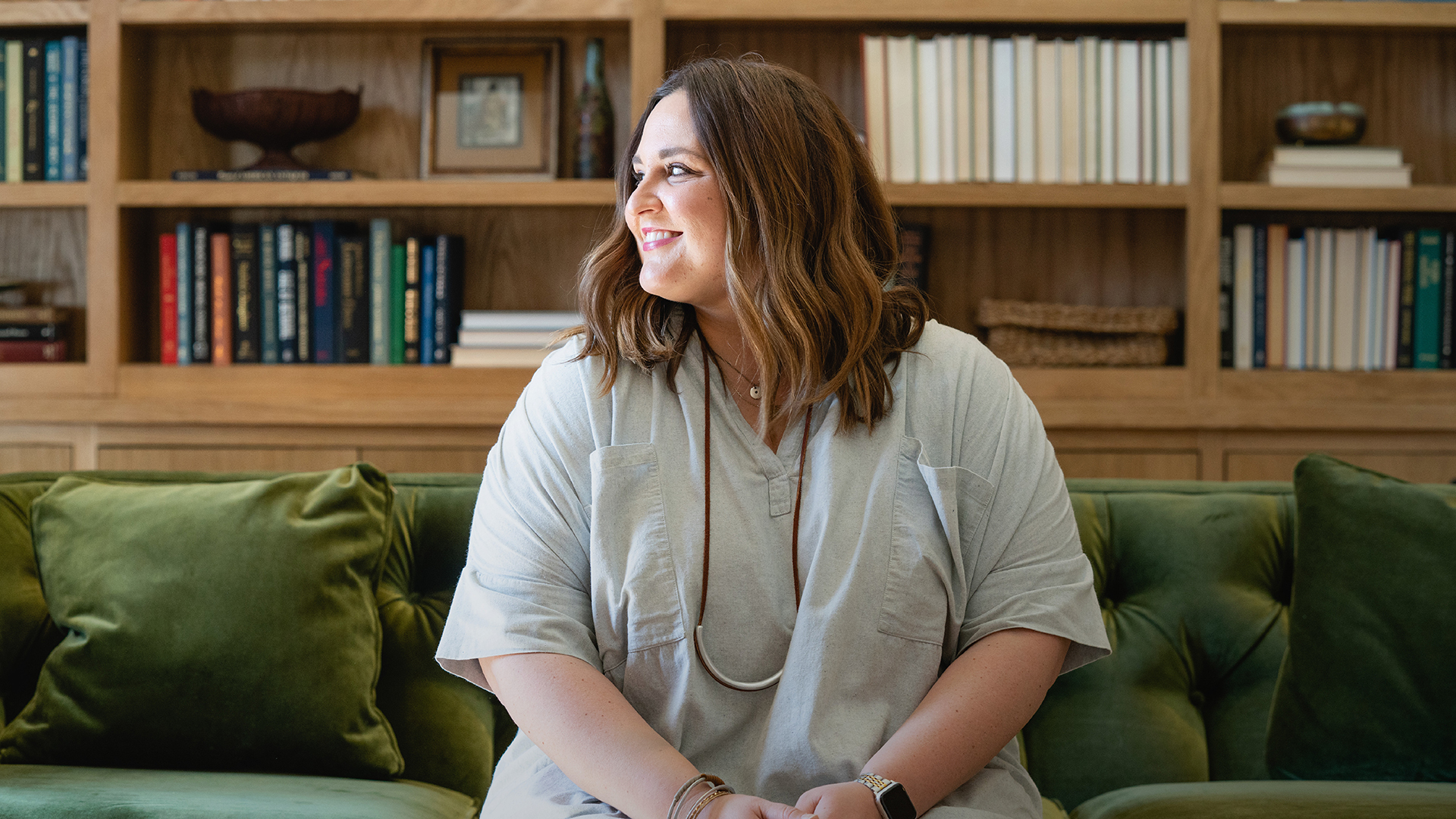How did you come to know the Lord?
“I remember as a young child believing in Jesus and that He died on the cross for our sins, but I often wrestled with viewing God as angry and distant, rather than loving and relational. I had a strong desire to please everyone around me – especially God in a misguided belief that I could earn His love.
“In my teenage years I attempted to control my circumstances and appear strong in an increasingly unpredictable homelife. I struggled with an eating disorder, pride, and compartmentalizing my life from the Lord. I was pretending to be self-righteous and strong, believing this was what being a Christian looked like.
“At this same time, I became involved in politics – a space where people would listen to me and I felt powerful. I started to elevate my political worldview over faith, because I thought I was fighting for righteousness. But I didn’t let Scripture inform what I was doing.
“When I moved to Dallas to study political science and public policy at SMU, I thought I would be in politics forever. In college, I joined a small group with Watermark’s campus ministry. I opened up about my past struggles, my family’s battle to survive brokenness and addiction, and my current sin. It was so freeing! I saw God’s design for us to be in community. God showed me the beauty of my weaknesses – because in them, I get to see and experience Christ and His power more clearly.”
How did you get involved with Watermark External Focus and Prison Fellowship?
“After college, I continued working in politics around the country. It was like a drug for me. I worked insanely long days, was married to my job, and put my community (and my relationship with Christ) on the back burner. If people had opposite political views than me, I assumed they weren’t Christians. Instead of loving them as children of God, I viewed them as enemies to be conquered.
“In God’s goodness, when I opened the Bible, it became clear how I was thinking was wrong. Political candidates had become messiahs to me. Policies had become gospels. It was idolatry. But when I moved back to my hometown, I was once again surrounded by a community at a local church. Through Scripture, prayer, and biblical advice, I realized that I was self-righteous and prideful. But God still held me. He started to knock down my idols and continued to remind me that my sins were completely covered by Jesus’s death on the cross. I learned to redefine words like ‘justice’ and righteousness’ directly from God’s Word. I needed to step away from politics for a time to allow for space to change. This led me to work for International Justice Mission, where my understanding of God’s heart for this world – and for me – grew exponentially. The biblical justice I misplaced for so long started to make sense as I learned more about God’s beautiful plan to rescue His children.
“After some spiritual growth and experience different organizations, I had an opportunity to accept a position with Prison Fellowship in Dallas. In this new role, I realized God wanted to take some changes He made in my life and weave some threads together in a way only He could.”
How does your love for Christ fuel your career and time serving?
“I now see and understand biblical justice: to offer restoration and reconciliation in light of the gospel. Because of Jesus, prison has become one of my favorite places to be. That’s a phrase I never thought I would say. When we get to listen to incarcerated men and women, it’s such a privilege; many have been defined by their worst mistakes. These men and women are created in the image of God, just like you and me. They have inherent dignity and potential. God calls us to remember the prisoner in Hebrews 13:3. Jesus invites us into prison, because He’s already there and He has the power to transform. We are all trapped in prisons of our own making, and Christ offers us freedom. No one is beyond God’s reach. I’ve learned how important it is for men and women who have paid their debt to society to be offered a second chance after prison. In our world today, we are deeply in need of God’s free gift of grace and restoration.
“Now my job is to help provide biblical restoration for people who are affected by crime and incarceration: to work toward breaking a cycle that produces broken relationships, victimization, despair, and instability What if when people went to prison, they came out completely transformed and were welcomed back into our churches? As we partner with Watermark, we get to discuss and implement what this looks like as a church in our city.”
Learn about the impact of incarceration and the church's unique role in restoration and reconciliation in an online equipping event on Saturday, April 17.
